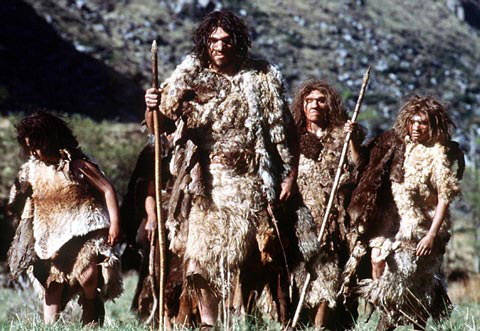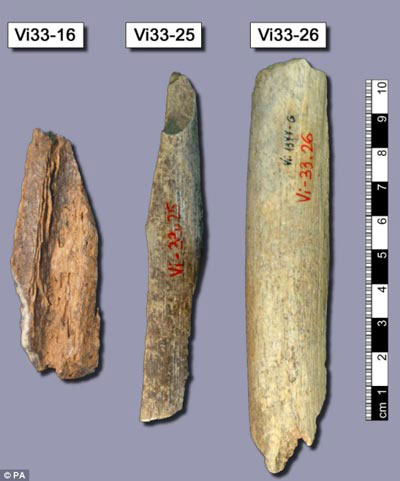Humans carry the genes of Neanderthals?
A recent study concluded that our ancestors could not resist the fascination of Neanderthals from 10,000 years ago. As a result, their genes have been transmitted to some extent in people today.
Specifically, up to 4% of the DNA of billions of people living in many parts of the world coincides with the genes of the small, stocky and living in this cave.
This finding is one of several studies aimed at completing the 'map' of the genome of Neanderthals, a branch on the family's 'tree' of extinct species from more than 30,000 years ago.

Images simulating ancient Neanderthals.
'This is interesting because Neanderthals are the closest evolutionary relatives to humans. If we want to identify the gene trait that makes people unique until now, it is important to study the genes of not only chimpanzees but the genes of Neanderthal relatives' , Dr. Svante Paabo, Institute of Evolutionary Anthropology Max Planck, Germany, who carried out this international-scale research, said.
These conclusions are the result of a four-year study, which analyzed 1.1 billion pieces of DNA taken from 40,000-year-old Neanderthal bones in Russia, Spain, Germany and Croatia.
Research published in the journal Science can 'decode' about 60% of the genetic code of extinct humans.
They compared the results with the complete DNA set of five human samples in South and West Africa, China, France and Papua New Guinea.
The results show that 4% of the DNA of living non-Africans now coincides with the Neanderthal genetic pattern.

Neanderthal bone fragments were used for analysis in the study.
Experts believe that Neanderthals and modern people share a common ancestor in Africa.
About 400,000 years ago, the first Neanderthals left Africa to Europe and Asia. However, the ancestors of humanity remained and evolved into modern people today. Later, they emigrated from Africa 100,000 years ago.
These two species lived in parallel in Europe and Asia until the Neanderthals disappeared about 30,000 years ago, probably due to competition with smart people.
Previous studies have suggested that there is a mutual 'purge' between two groups of people.

Comparison between the bones of Neanderthals (left) and modern humans (right).
It is still unclear how the 'mating' between Neanderthals and modern people takes place. Neanderthal genes can 'move' through human ancestors if a group of 1,000 modern humans breeds with only 20 to 40 Neanderthal women.
Neanderthal research specialist, Professor Chris Stringer, from the British Museum of Natural History, said the discovery was an 'extraordinary application achievement'. 'This means I have to accept the fact that I have a part of the Neanderthal gene in my body , ' he said.
Source: Mail Online
- It is hard to have sex between Neanderthals and modern people
- New discovery of the extinction of the Neanderthals
- New discovery of the end of Neanderthals
- Humans inherit good genes from ancient Neanderthals
- Neanderthal's persistent revenge
- Thanks to Neanderthals, we are suffering from schizophrenia
- Are Neanderthals extinct because their eyes are too big?
- The first people are slightly squashed by the genetic genes of Neanderthals
- People have eaten Neanderthal relatives?
- New discovery about the primitive extinct Neanderthal
- Found the true origin of humanity?
- The first time proving that C60 can carry genes
 Discovered an ancient centipede fossil 99 million years old
Discovered an ancient centipede fossil 99 million years old Discovered bat-like dinosaurs in China
Discovered bat-like dinosaurs in China Discovered a 200-year-old bronze cannon of the coast
Discovered a 200-year-old bronze cannon of the coast Discover 305 million-year-old spider fossils
Discover 305 million-year-old spider fossils